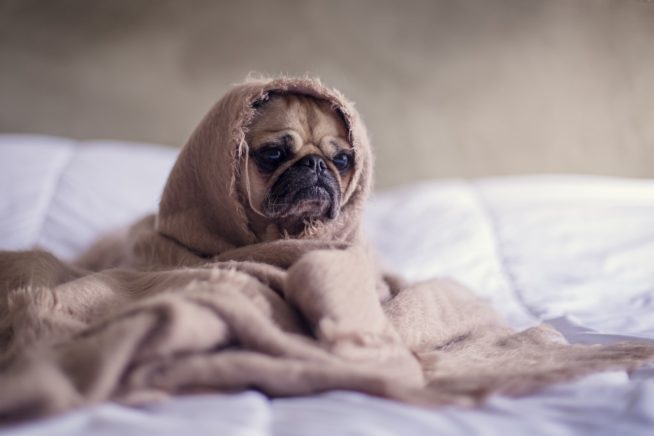Since I started my happiness project, I’ve become more and more convinced of the importance of sleep to happiness. Many researchers argue that not getting enough sleep has broad health consequences, such as raising your risk for cancer, heart disease, diabetes, and even obesity, but in addition to those, it has a profound effect on happiness and energy level. We get accustomed to being sleep-deprived, and although at first, we notice the effect on mood and alertness, before long, we adjust to that state as normal. So even if you insist that you feel fine, if you got more sleep, you might feel a lot better.
I usually sleep well once my head hits the pillow, but until I started my happiness project, I would often stay up late to read, answer emails, watch TV, talk to my sister on the west coast, or cruise the internet. I had to wait until my children were asleep before I could start my real leisure time.
I was fine at night, but I suffered the next morning. I feel crabby when I’m jarred out of sleep by the alarm, and I dislike racing around on weekday mornings, with no time to spare. I realized that to have more energy and more calm, I needed to go to sleep earlier (and also to wake up earlier). I looked for ways to prod myself to turn off the light and to get better sleep.
Here are 14 tips for getting more sleep – and why it matters:
1. Set a specific bedtime for yourself.
Many people have no idea what time they “should” go to sleep in order to feel well-rested. Be realistic! If you have to wake up at 7:00 am, staying awake until 1:30 am each night is unlikely to be sufficient.
2. Get ready for bed well before your bedtime.
Sometimes, paradoxically, I feel too tired to go to bed. I try to wash my face, take out my contact lenses, and brush my teeth well before I plan to turn off the light.
3. Make your room very dark.
Shut the blinds, block out the lights from your computer, clock, phone, etc. Even the tiny light from a digital alarm clock can disrupt a sleep cycle.
4. Stretch.
I read a study that showed that women who were having trouble sleeping fared much better when they stretched four times a week.
5. Keep your bedroom a little chilly.
6. If your mind is racing with worry, make a list of everything you need to do the next day.
This really works for me. I can make myself crazy fretting that I’m going to forget to do something important; if I make a list, I can relax.
7. Tidy up your bedroom.
It’s not restful to be surrounded by clutter.
8. Exercise.
Studies suggest that people who exercise fall asleep faster and stay sleep longer – and this is particularly true for people who have trouble sleeping.
9. An hour before bedtime, avoid work that requires alert thinking.
I try to stop myself from checking my emails before I go to bed, because it wakes me up. I’ve made this mistake many times. I would get some emails answered, but I was so wound up that it took me forever to go to sleep.
10. My personal sleep-inducing innovation: Slather myself with body lotion.
This feels good and also, if I’m having trouble sleeping because I’m hot, it cools me down.
11. My other sleep-inducing innovation: Put on socks if my feet are cold.
I feel frumpy, but my husband won’t let me use his legs as a foot-warmer!
12. Yawn.
13. Tell yourself, “I have to get up now.”
Imagine that you just hit the snooze alarm and in a minute, you’re going to be marching through the morning routine. Often this is an exhausting enough prospect to make me fall asleep.
14. Give up, and re-frame your sleeplessness as a welcome opportunity to snatch some extra time out of your day.
If I wake up and can’t get to sleep after 4:00 a.m, I get up and start working. Instead of starting the day feeling annoyed, I have a wonderful feeling of having accomplished a lot before my usual wake-up time of 6:00 am.
What other strategies have worked for you — to get yourself to turn off the light, or once in bed, to get more restful sleep?
Gretchen Rubin is the author of the #1 New York Times Bestseller The Happiness Project—an account of the year she spent test-driving the wisdom of the ages, current scientific studies, and lessons from popular culture about how to be happier—and the recently released Happier at Home and Better Than Before. On her popular blog, The Happiness Project, she reports on her daily adventures in the pursuit of happiness. For more doses of happiness and other happenings, follow Gretchen on Facebook and Twitter.
Image courtesy of Matthew Henry.












